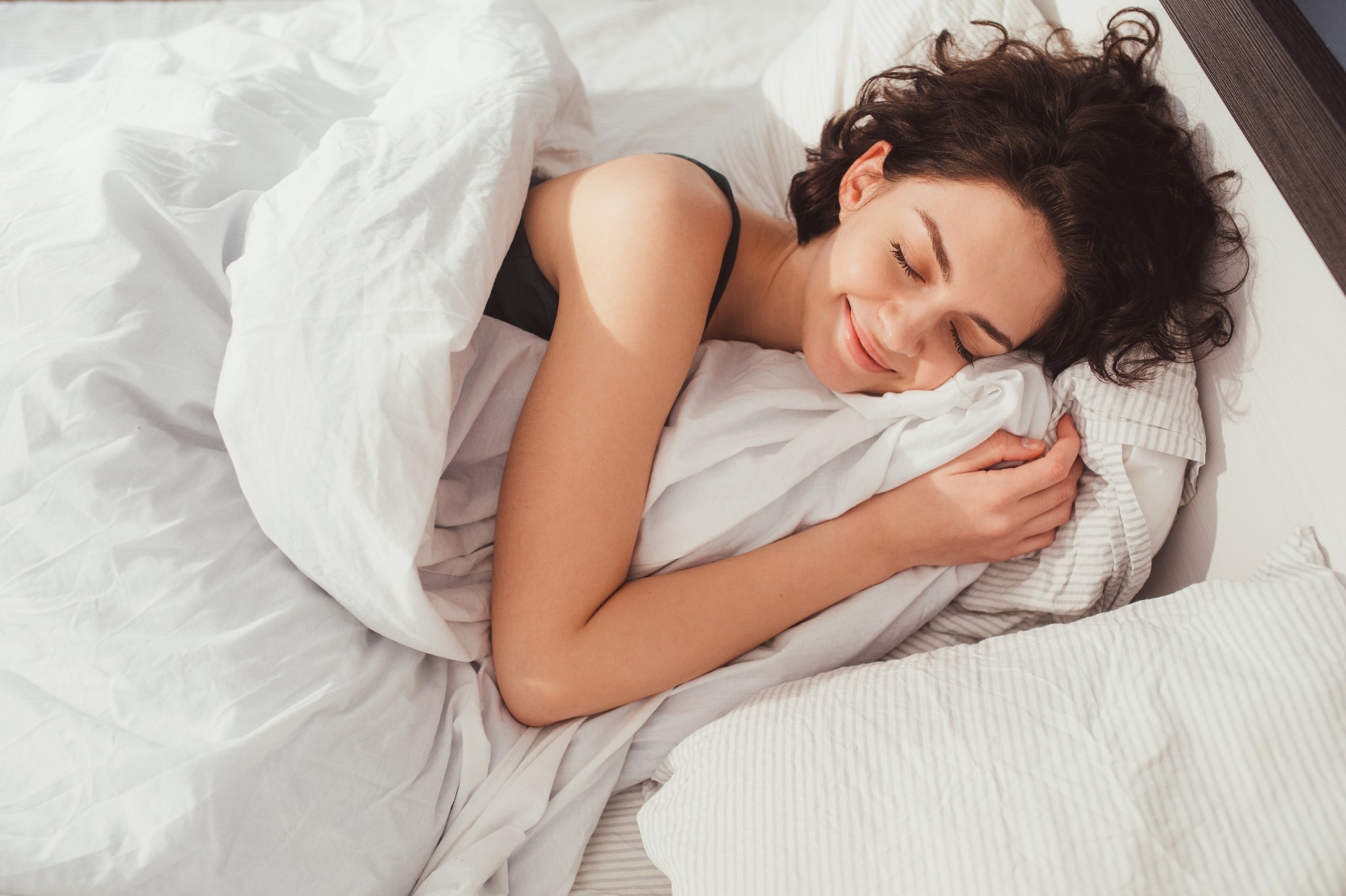They found that compared to controls, participants who microdosed on LSD slept longer the next night, with no reduction in sleep observed on dosing days.
 Study: LSD increases sleep duration the night after microdosing. Image Credit: Olena Yakobchuk/Shutterstock.com
Study: LSD increases sleep duration the night after microdosing. Image Credit: Olena Yakobchuk/Shutterstock.com
Background
Micro-dosing, the practice of self-administering psychedelic drugs below hallucinogenic thresholds, is believed to enhance mood, creativity, and productivity. While its effects on neurophysiological function are documented, its impact on sleep behavior remains unexplored.
Previous studies on macrodoses of psychedelics like ayahuasca and psilocybin suggest alterations in rapid eye movement (REM) sleep but do not affect total sleep time. Animal studies similarly show increased wakefulness and reduced REM and non-REM durations with serotonergic psychedelics.
A 1966 study objectively measured sleep in association with micro-dosing and showed that low doses of LSD significantly increased REM duration and interrupted slow-wave sleep. Still, the timing of drug administration differed from modern micro-dosing practices.
Subjective reports on sleep quality from micro-dosing studies indicate mixed effects, with some reporting improvements and others experiencing difficulties, such as insomnia. While some individuals cite improved sleep quality as a motivation for micro-dosing, others report challenges, suggesting a bidirectional impact on sleep.
Given the current shortage of evidence in the field, in the present phase I trial, researchers assessed the effect of LSD micro-dosing on sleep duration using commercially available watches.
About the study
The present study employed a double-blind parallel-group design, randomizing healthy male volunteers into LSD (n = 40) and placebo (n = 40) groups. Participants self-administered ten µg LSD base or placebo every three days for six weeks.
Five participants did not complete the trial protocol, and three were administered an extra dose due to scheduling issues.
Key inclusion criteria were males aged 25–60 years. On the other hand, exclusion criteria included specific medical conditions, psychiatric disorders, substance use, and prior psychedelic microdosing.
Four visits were conducted: screening, baseline, first dosing (day 1), and follow-up (day 42). Screening involved urine drug and breathalyzer tests. Participants were given Fitbit Charge 3/4 devices to wear throughout the trial, syncing sleep and activity data via the Fitbit app.
Dosing occurred before 11 am on dosing days. Compliance was ensured by video recording dose administration.
The analysis included 3231 nights of data, with an average of 40.39 nights per participant. The study processed Fitbit sleep data focusing on sleep states: “REM,” “deep,” “light,” and “awake.”
Statistical analysis involved the use of linear mixed-effects modeling without imputation for missing data, and Bonferroni correction.
Results and discussion
The analysis revealed a significant increase in REM sleep (p = 0.0037), time asleep (p = 0.0026), and total sleep (p = 0.0027) on the night after microdosing with LSD compared to placebo.
These differences amounted to an additional 8.13 minutes of REM sleep, 21.1 minutes asleep, and 24.3 minutes of total sleep. While deep sleep approached significance (p = 0.043), no changes in sleep stage proportions reached significance.
Participants in the LSD group went to bed significantly earlier (around 25.17 minutes, p =0.005) on the night after microdosing, but no significant change was observed in wake-up time. Additionally, there were no effects across time regarding the modification in sleep time on the night after microdosing.
No significant changes were observed in physical activity patterns between the LSD and placebo groups. Additionally, no noticeable interaction effects were observed in metrics such as calories, distance, steps, or activity states (sedentary, light activity, moderate activity, very active).
Participants in the LSD group reported marginally increased tiredness on the day after dosing, with ten sleep-related adverse events reported compared to four in the placebo group.
In qualitative interviews, participants noted varied effects on energy levels with micro-dosing but did not explicitly mention needing extra sleep or earlier bedtimes.
Overall, the study is strengthened by the use of wearable devices that enabled the collection of a large amount of naturalistic sleep data while being minimally intrusive compared to traditional sleep laboratory settings.
However, the study's limitations include the exclusive focus on healthy male participants, potential lack of generalizability to females and individuals with mental health conditions, and reliance on wearable devices, which may lack access to important clinical sleep metrics.
Conclusion
In conclusion, the study's findings highlight the significant increase in total sleep observed with LSD microdosing. The findings support the integration of wearable devices for sleep monitoring in the ongoing phase II trials of LSD micro-dosing for major depressive disorder.
Additionally, they emphasize the need for "off" days between micro-dosing sessions to facilitate adequate recovery, offering valuable insights for future research and clinical practice in psychedelic-assisted therapy.